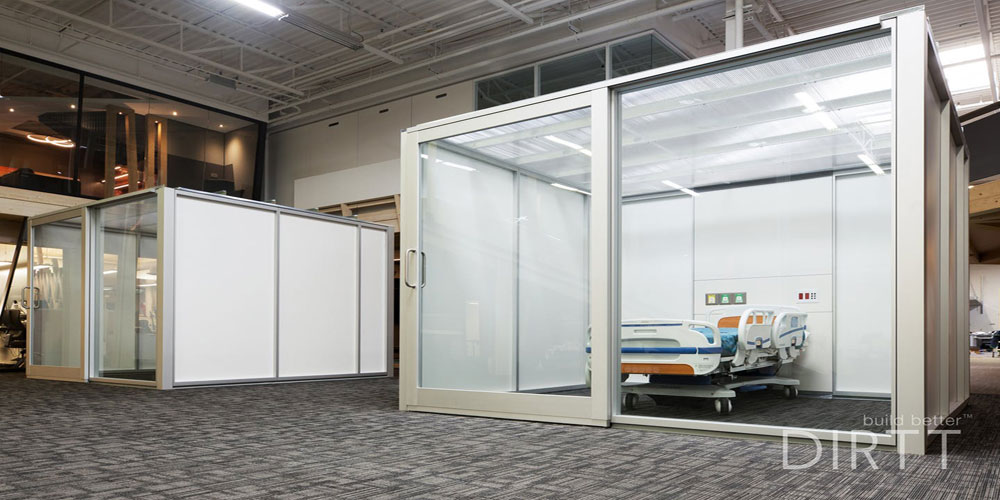
Isolation Rooms in Effective Barrier Nursing
Barrier nursing is a form of infection control that aims to prevent the spread of infections within healthcare settings. It involves the use of various measures to contain infections, such as the use of personal protective equipment, isolation rooms, and other techniques. Isolation rooms, in particular, play a crucial role in effective barrier nursing. They are designed to provide a safe and controlled environment for patients with infectious diseases, while also protecting healthcare workers and other patients from potential exposure.
Isolation rooms are typically equipped with a range of features that are designed to prevent the spread of infections. For example, they often have negative pressure ventilation systems that prevent air from flowing out of the room and into other areas. This helps to ensure that any airborne pathogens are contained within the room and do not spread to other patients or healthcare workers.
In addition to negative pressure ventilation systems, isolation rooms also typically have other features that promote infection control. For example, they may have antimicrobial surfaces, such as walls and floors, that can help to prevent the growth and spread of bacteria and viruses. They may also have specialised air filters that can capture and remove airborne pathogens from the air.
Isolation rooms are particularly useful in the context of infectious diseases that are easily transmitted through the air. For example, they are commonly used for patients with tuberculosis, influensa, and other respiratory infections. In these cases, the negative pressure ventilation system and other features of the isolation room can help to prevent the spread of the disease to other patients and healthcare workers.
The use of isolation rooms is not without its challenges, however. For example, it can be difficult to ensure that healthcare workers adhere to proper infection control protocols when working in isolation rooms. Additionally, patients may feel isolated and lonely when confined to an isolation room, which can have negative effects on their mental health and well-being.
To address these challenges, healthcare organisations must take a comprehensive approach to barrier nursing that includes not only the use of isolation rooms but also the training and education of healthcare workers, the use of appropriate personal protective equipment, and other measures. By taking a holistic approach to infection control, healthcare organisations can help to prevent the spread of infectious diseases while also ensuring that patients receive the care and support they need.
Isolation rooms are a critical component of effective barrier nursing. They provide a safe and controlled environment for patients with infectious diseases, while also helping to prevent the spread of those diseases to other patients and healthcare workers.
While there are challenges associated with the use of isolation rooms, these can be overcome through a comprehensive approach to infection control that includes education, training, and the use of appropriate equipment and measures. By prioritising infection control in healthcare settings, we can help to protect the health and well-being of both patients and healthcare workers.
Furthermore, it is important to note that the use of isolation rooms is not limited to hospital settings. They may also be used in other contexts, such as schools or community centers, in the event of a disease outbreak. In these cases, isolation rooms can help to prevent the spread of the disease within the community.
It is worth emphasising that the use of isolation rooms should not be seen as a replacement for other infection control measures. Rather, it is one of many tools that can be used to prevent the spread of infectious diseases. Other important measures include hand hygiene, proper use of personal protective equipment, and vaccination.
Finally, it is essential that healthcare organisations and other institutions prioritise the safety and well-being of their patients and staff when implementing barrier nursing measures. This includes ensuring that isolation rooms are clean, well-maintained, and equipped with the necessary features to promote infection control. It also means providing emotional support to patients who may feel isolated or anxious while in isolation.
It is also important to note that the use of isolation rooms should be guided by the principles of ethics and human rights. Patients who are isolated in these rooms may experience loneliness, anxiety, and other psychological distress. Therefore, healthcare organisations should ensure that patients are provided with appropriate emotional support and that their human rights are respected.
Additionally, healthcare organisations should strive to minimise the use of isolation rooms wherever possible. This may involve implementing measures to reduce the spread of infectious diseases in the first place, such as vaccination programs and infection control protocols. It may also involve finding alternative ways to treat patients who are infected with highly contagious diseases.
The Fight Against Infectious Diseases
In conclusion, the use of isolation rooms is an important tool in the fight against infectious diseases. They play a vital role in preventing the spread of diseases and protecting the health and safety of patients and healthcare workers. However, the use of isolation rooms should be guided by ethical principles and a commitment to human rights.
Healthcare organisations should strive to minimise the use of isolation rooms wherever possible and provide appropriate emotional support to patients who are isolated. By doing so, we can help to promote a healthier, safer society for all.